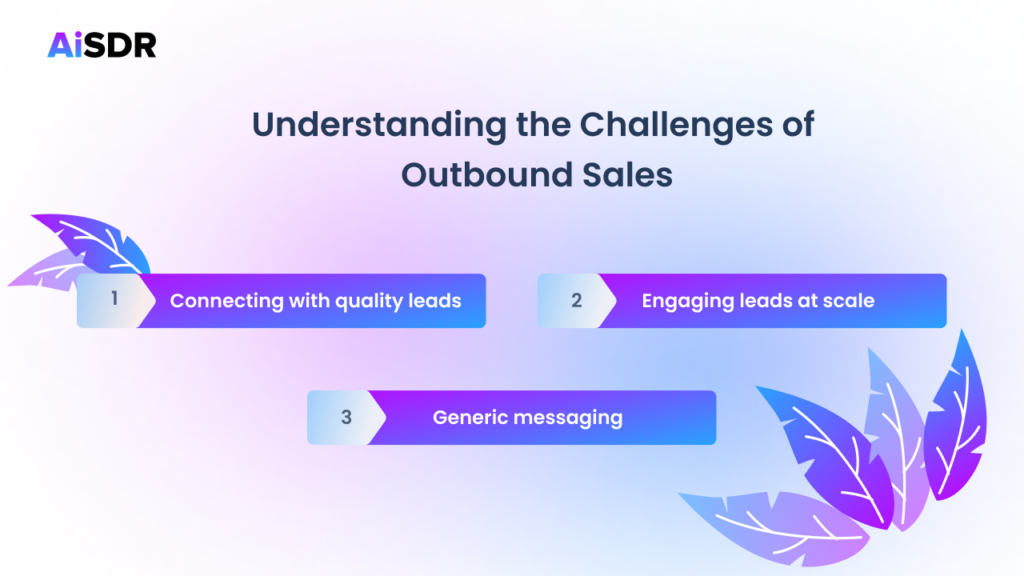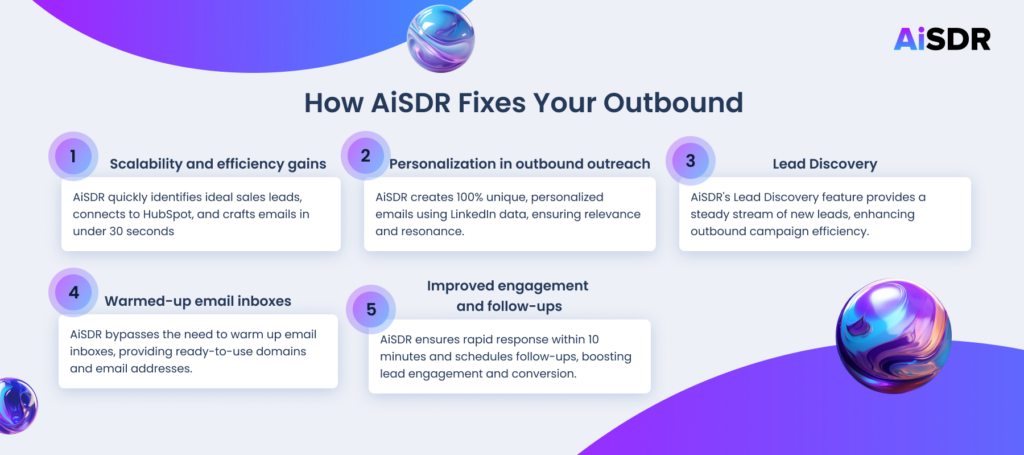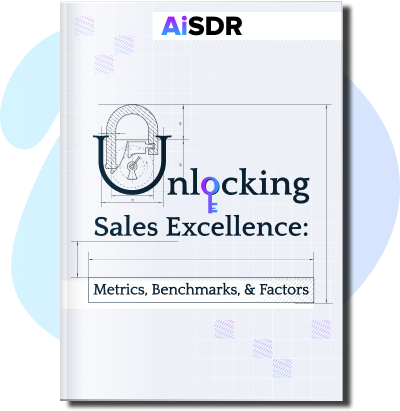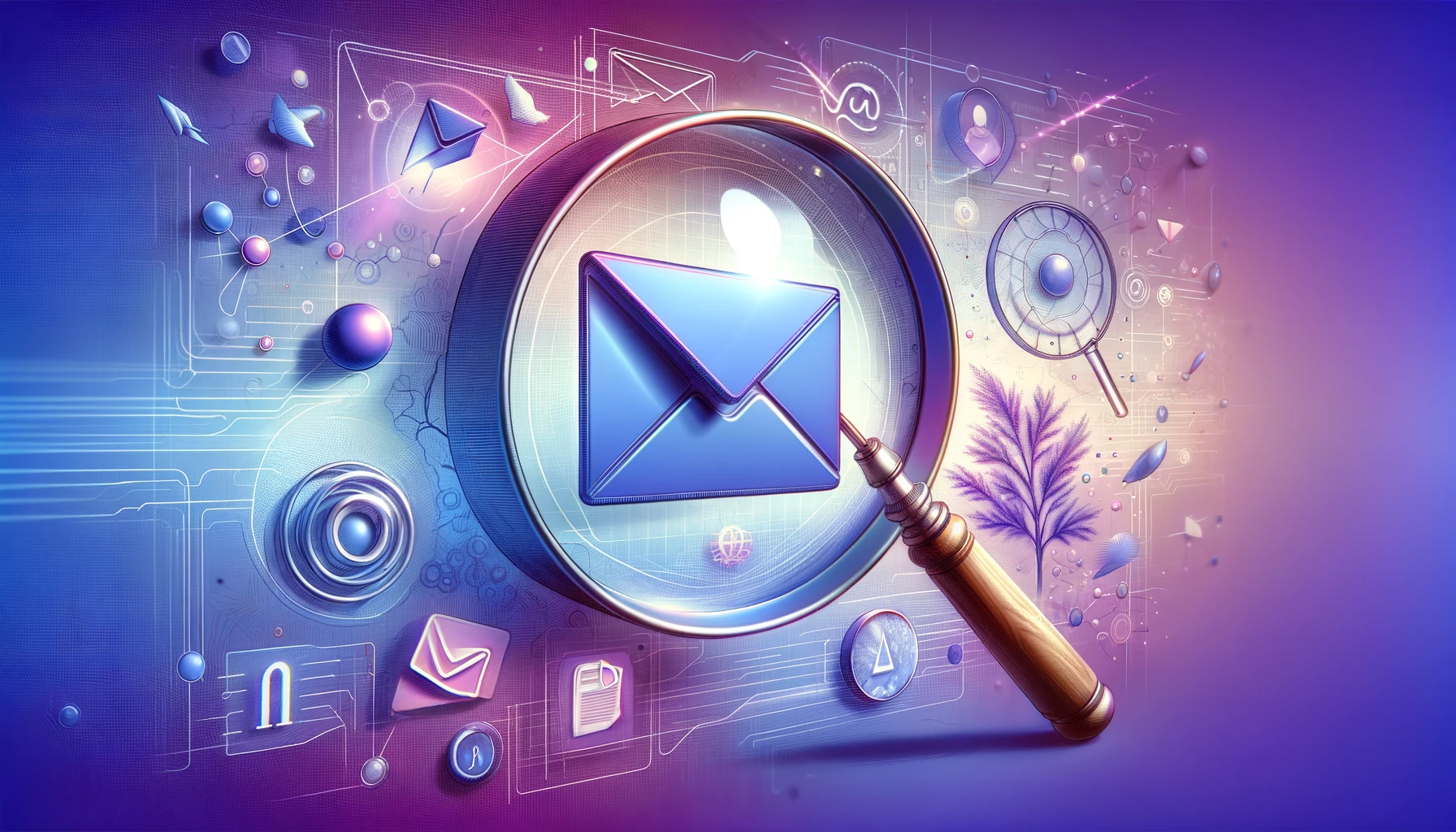How AiSDR Fixes Broken Outbound

Does your cold outreach fail to get results? Find out how AiSDR can fix broken outbound
“My outbound isn’t working.”
Or to be more accurate, it probably was working, but now it just can’t convert as effectively.
This could be due to one of a plethora of factors:
- Literal mountains of potential leads to sift through.
- Sales-savvy prospects demanding a constantly more personalized approach.
- Massive pressure on teams to juggle all demands and effectively pull a rabbit out of the sales hat.
It’s no wonder that today’s SDRs – in a bid to meet their quota – are falling back on automation and generic sequencing while saving personalization for further down the funnel.
But with 76% of B2B buyers expecting personalized attention, this strategy is doomed to fail: Today’s SDRs need to craft truly personalized outreach right from the start.
In fact, if you’re not meeting the recommended reply rate of 15 to 30% of emails sent, it’s a sign that your teams may have fallen into a pattern of sending ineffective emails.
That’s where AiSDR comes in. By leveraging generative AI and LinkedIn data, our AI SDR sales automation tool works alongside your sales team to superpower sales outreach and hyper-personalize every email.
Here’s a closer look not only at the challenges of outreach, but also at how AiSDR fixes broken outbound to make it part of your GTM strategy.
Understanding the challenges of outbound sales
While there are several reasons why outbound campaigns can stall, here are the three most common challenges you’re likely to encounter.

Connecting with quality leads
No amount of outreach emails will convert leads into paying customers if you’re contacting the wrong people.
That’s why before you launch your outbound campaigns, you need to outline your sales personas and ideal customer profiles.
In an ideal world, your sales personas and ICPs would contain enough details to allow your sales and marketing teams to use them for making sales pitches and creating content that resonates with prospects.
However, a good sales persona requires painstaking research and the ability to balance detail with ease of use. Not to mention, SDRs under pressure to meet their quota will cut corners and bend the rules to reach more prospects.
The result? Inefficient sales personas and too many poor-quality leads.
Engaging leads at scale
To feed the sales pipeline, SDRs must consistently reach out to new contacts. On top of that, they need to be just as persistent with their follow-ups.
This means a new batch of emails gets sent every day. Before you know it, your SDRs are literally drowning in email exchanges.
Let’s imagine you set a daily quota of 50 emails. At first, this sounds manageable. But if you’re sending an email to a new lead 50 times a day, you could find yourself managing 10,000 conversations by the end of the month!
This is a recipe for burnout and high SDR churn.
Generic messaging
Relying on simple automation and generic sequences is another easy way to miss golden sales opportunities.
Outbound campaigns are time- and effort-intensive. If you set them up manually, you risk bogging down your teams with overly repetitive work, leaving them with little bandwidth for high-level strategy and personalized interactions.
While templates and sequences are commonly used to speed up this process, they are limited in terms of personalization. As a result, leads are less likely to respond positively.
How AiSDR fixes your outbound
A good AI sales development representative (AI SDR, also known as a virtual SDR) is one potential sales software solution for fixing broken outbound.
Here are some of the benefits of using AI SDRs to run go-to-market plays and revamp ineffective outbound.

Scalability and efficiency gains
AiSDR can sift through your leads and pinpoint those that match your sales persona or ideal customer profile in a snap. All you have to do is connect the AI sales automation tool to your HubSpot and let AiSDR work its magic.
You can also count on AiSDR to generate and send an email in less than 30 seconds, which typically takes human SDRs 15-20 minutes. It can even create entire email campaigns tailored to specific pain points, concerns, or even holiday discounts.
Personalization in outbound outreach
By their very nature, email templates and sequences have limited amounts of personalization. Yet personalization by a human SDR will cause email creation to slow down considerably.
With AiSDR, targeted messaging at scale is no longer like a drag on processes. Not only is every email generated by AiSDR 100% unique and personalized, but AiSDR leverages data from LinkedIn and your lead list to ensure content is relevant and resonates.
Lead Discovery
One issue companies are forced to tackle, especially start-ups, is obtaining a steady stream of leads. After all, if your SDRs run out of leads, outbound campaigns will stall out.
AiSDR’s Lead Discovery is a built-in lead database that allows you to quickly and conveniently find new leads, filter prospects by specific criteria, and add them to your campaign. This ensures you’ll always have fresh leads ready to contact.
Warmed-up email inboxes
A common culprit behind broken outbound is a cold inbox. Email accounts that haven’t been properly warmed up may also cause your outreach to stall.
Here are some of the possible consequences of a cold inbox:
- Emails trigger spam filters and land in spam.
- Accounts are suspended.
- Inboxes receive a bad reputation.
- Campaign performance will be poor due to lack of deliverability.
There’s no strict rule about how long it takes to warm up a new email inbox. However, properly warming up an inbox will take at least 3-4 weeks, if not longer. The long warm-up may cause some to cut corners, resulting in an inbox that won’t be able to run outbound campaigns.
AiSDR solves this issue by helping you skip the time-consuming hassle of DIY inbox warm-up. Just delegate warm-up to AiSDR and you’ll receive a new domain and two email addresses ready for launching your outreach.
Improved engagement and follow-ups
Two years ago, leads were already expecting responses to marketing and sales questions within 10 minutes. Today, demands are even tougher and decisions are made faster – the first company to respond to an interested prospect has a significant advantage in closing a deal.
AiSDR will put you in a position to succeed by ensuring responses are sent within 10 minutes. You can also set up AiSDR to send follow-up emails at scheduled intervals.
Combined, this improves AiSDR’s ability to push leads down the sales funnel and get prospects to book a demo or schedule a call.
Common objections to AI in outbound
Sales and marketing teams are still skeptical about the abilities of generative AI. After all, there’s enough bad content and emails to suggest that AI isn’t ready to replace your sales team just yet.
Here are a few common objections to using AI in outbound, along with a more practical reality.
“Nobody wants an email from a robot”
AI has reached a level of sophistication that allows it to generate content that sounds, looks, and feels human. But with it comes concerns about losing authenticity. While such worries are valid, the right AI tech can help you easily overcome them.
AiSDR, for instance, personalizes emails by taking into account recent LinkedIn data, as well as pain points and product solutions pulled from your sales persona.
“Nobody wants to talk to a robot”
Teams are understandably wary of automated interactions in outbound sales and marketing, where human insight is paramount.
But here’s the reality: AI is remarkable for the speed at which it learns and improves its ability to understand context, tone, and sentiment. Over time, its interactions with your customers will become even more effective and human-sounding. Moreover, you’ll never have to worry about accidental typos and grammar mistakes.
“Isn’t AI stealing our jobs?”
With AI becoming proficient at personalizing content and sounding human, many marketers worry that they’ll be replaced. In reality, AI augments a person’s responsibilities, allowing them to focus on work that requires creativity, strategic thinking, and a human touch.
Marketers and salespeople all need creativity, empathy, and intuition to be highly effective at their job. These are uniquely human traits that AI cannot master. And even when AI is managing repetitive SDR tasks, it still requires some human oversight to ensure that it doesn’t go off on a tangent.
“We don’t have the budget”
AI technology sounds so advanced that it’s easy to assume it comes with a hefty price tag. But that’s not always true.
Let’s take AiSDR as an example. For just $750 per month, AiSDR will manage your sales outreach from end to end faster and more efficiently than many human SDRs at just 10% of a human SDR’s salary.
Fix your broken outbound with AiSDR
Generative AI has proven it’s a game-changer for boosting sales and marketing processes, allowing teams to automate workflows and complete repetitive tasks in a fraction of the time.
If you’ve ever been tempted to give up and declare “My outbound isn’t working”, give AiSDR a spin. AiSDR will help you revamp your outbound by properly warming up email accounts for outreach, sending hyper-personalized emails, and securing a steady stream of leads.
Book a demo to witness how AiSDR fixes broken outbound.
FAQ
How does a broken outbound sales process impact overall business performance?
In simple terms, a broken outbound sales process means you’re not converting your leads into paying customers, which means your company is failing to grow its revenue. This could be due to one of many reasons: You’re reaching out to the wrong target audience, sending out generic messages that fail to resonate, or drowning your marketing and sales teams in repetitive work. Failing to fix these issues will result in missed opportunities and low customer acquisition rates.
Are there common mistakes companies make in trying to fix broken outbound?
Companies make three main mistakes when trying to fix outbound sales: pressuring sales teams to amp up their volume of outreach, congesting the top of the funnel with hurried activities that leave little time for more strategic and personalized selling, and promoting a quantity-over-quality dynamic that leaves sales reps underperforming even as they’re drowning in tasks.
What metrics should companies use to measure the effectiveness of outbound email campaigns?
Here are some KPIs you can use to track the success of your outbound email campaigns:
- Emails sent
- Leads engaged
- Bounce rate
- Open rate
- Clickthrough rate
- Response rate
- Meetings booked
Choose the KPIs most relevant to your business and diligently track them.











